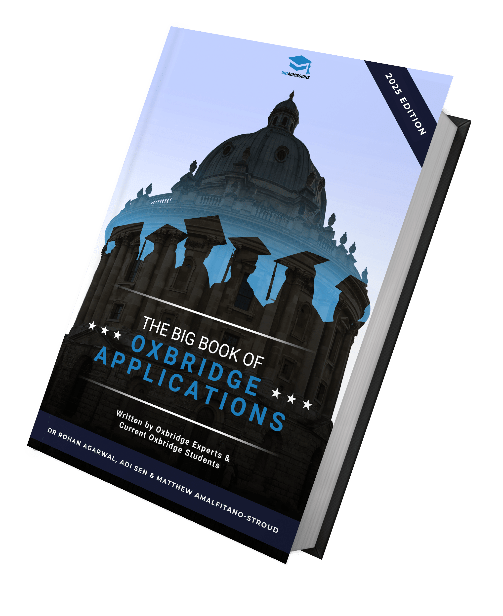A-level results day represents the culmination of years of hard work, multiple exams (usually!) and marks the beginning of higher education or employment.
We have produced a guide for results day, the average grades needed to get into Oxford or Cambridge, and the options you have if your results did not match your expectations – whether for better or worse.
What to expect on the day
On the day, your results will be available from after 8 AM, but also check your local school opening time to see when you will be able to physically go in and collect them. From 8 AM, UCAS will have updated your results on Track which will indicate your “outcome”- i.e., what your results mean for your university choice.
The possible scenarios on UCAS Track are:
- You have met your conditional offer – congratulations!
- You have an Unconditional Changed Offer – one or both of your choices may have offered you an alternative course, which you should carefully consider
- You are in Clearing – you have not met your offers and are eligible for Clearing (see our section on Clearing below)
- No update – this may be due to delays in university communication or with UCAS. You may wish to call universities directly
Below is a guide to your options based on what happens with your results:
| Did Not Meet Grades | Met Grades | Exceeded Grades | No Offers Or You've Declined All Offers: |
|---|---|---|---|
| UCAS Clearing | Match your Desired Offer | UCAS Adjustment | UCAS Extra |
For information on UCAS Adjustment, see our blog post here.
In essence, it enables you to search for alternative universities and courses if you have exceeded your offers, but you are not under any obligation to do so.
What are my options if I don’t achieve my required grades?
Below is a guide to your options if you do not meet your required grades.
Appealing grades is a decision you should discuss with teachers and admissions advisors as grades won’t necessarily increase (and may even go down), and you may be better thinking about Clearing choices. Clearing is a safety net that enables you to select from a list of approved courses, from universities that have spare places. For our full guidance on clearing, see our blog post here.
You also have the more straightforward option of “Clearing Plus”, which is a new initiative set up by UCAS. Clearing Plus matches your subjects and achieved grades to universities that have places available and are related to your chosen courses. You aren’t obligated to choose courses on the provided list and can go through the normal Clearing process.
Resitting exams is an option if you feel your exam performance could be better. If you feel you would like time out and do not want to enter university this year, you have the option to retake in the next Summer. This is an especially viable option, worth considering for highly competitive courses such as Oxford or Cambridge. This decision is not just about A-level grades, if you achieved the grades necessary, but got a poor Admissions Test score or submitted a sub-par Personal Statement, re-sitting and applying for university the following year could be a good option for you.
You should consider what approach you would take in terms of private tuition for Admissions Tests, exam fees and how you could spend the year to improve your application. Something we can support you with to help you receive an offer from your first choice.
You cannot use your previous year Admissions Test score for a university course commencing the year after if you are taking a year out, so to re-apply, you will have to resit the Admissions Test.
What A-level grades do I need to get into Oxbridge?
As some of the most competitive courses available, typical students who are accepted into Oxbridge do very well at A-level.
All realistic applicants will take at least three A levels, excluding General Studies and Critical Thinking.
Below are the overall A level grades for the 2019 and 2020 cycle:
| Cambridge 2020 Undergraduate Admissions Statistics | ||
|---|---|---|
| Grades | Sciences | Arts |
| A* A* A* | 39% | 29.9% |
| A* A* A | 4.6% | 15% |
| A* A A | 1.1% | 8.5% |
| Cambridge 2019 Undergraduate Admissions Statistics | ||
|---|---|---|
| Grades | Sciences | Arts |
| A* A* A* | 37.8% | 16.9% |
| A* A* A | 8.6% | 15.3% |
| A* A A | 2.4% | 12.6% |
| Oxford 2020 Undergraduate Admissions Statistics | |
|---|---|
| A* A* A* | 58.4% |
| A* A* A | 20.8% |
| A* A A | 11.8% |
| A A A | 4.4% |
| Oxford 2019 Undergraduate Admissions Statistics | |
|---|---|
| A* A* A* | 39.9% |
| A* A* A | 26.2% |
| A* A A | 18.8% |
| A A A | 7.6% |
Clearly, a high percentage of successful Oxford students have at least three A*s at A level, and the majority (79.2%) get at least A*A*A, but considering the importance of interviews and entrance exams, it is possible to secure a place with lower grades depending on the course you’re applying to.
Here are some of the minimum grade requirements for the more competitive courses at Oxford and Cambridge;
| University | Subject | Minimum |
|---|---|---|
| Cambridge | BSc Computer Science | A*A*A |
| BA Architecture | A*AA | |
| BA Economics | A*A*A | |
| MB,BChir Medicine | A*A*A | |
| Oxford | BA/MMath Mathematics and Statistics | A*A*A |
| BA Economics and Management | A*AA | |
| BA/MCompSci Computer Science | A*AA | |
| BM BCh Medicine | A*AA |
Access "The Big Book Of Oxbridge Applications" For FREE
Are you considering applying to Oxford or Cambridge? The Big Book of Oxbridge Applications is your must-have resource. Whether you’re exploring colleges, preparing for your admissions test, mastering your UCAS application, crafting a standout Personal Statement, or aiming for exam success, this free book will be invaluable to your preparation. You’ll find:
- Over 40 admissions test practice questions
- 28 example Oxbridge Personal Statements
- Interviews with Oxbridge students and graduates
- Additional downloadable resources

As you can see, Cambridge tend to set higher minimum A-level grade requirements. Almost every course requires at least one A* in a relevant subject. Conversely, Oxford offer lower minimum grade requirements, even on some of their most competitive courses such as PPE.
Although the stated minimum grade requirements are lower, the 2020 undergraduate admissions data above shows that a higher percentage of successful Oxford candidates achieve A-level grades of A*A*A and above. This could show that Oxford University place a higher weight on A-level grades than Cambridge, or Cambridge place a higher weight on other areas of the application, such as the Admissions Test or Interview.
This data doesn’t, however, present the full story. As the average successful candidate’s A-level grades we’ve shown above for 2020 are an aggregate set of data of all courses, it doesn’t take into consideration how specific departments and courses evaluate applications. For example, Oxford admissions tutors for Medicine could place a much higher weight on the BMAT (Medical admissions test) than Law admissions tutors at Oxford place on the LNAT. Because of this, the data above should be taken with a grain of salt.
So what if I want to reapply?
If you are thinking about reapplying and want to know what will improve your chances the most, you’ll need to do specific research into your preferred course and find out which applications elements are most important. Your best plan will be to focus on those elements next year and ensure there are no weak areas in your application.
Alternatively, you can speak with our expert Admissions Consultants who can help you understand exactly what went wrong, and how to ensure you have the best possible chances of attaining an offer next year. They will help you devise a personalised strategy, bespoke to your needs, that will triple your chances of success.
You can do this through our Premium Programmes which cover all areas of your application, ensuring you have no weaknesses throughout.






